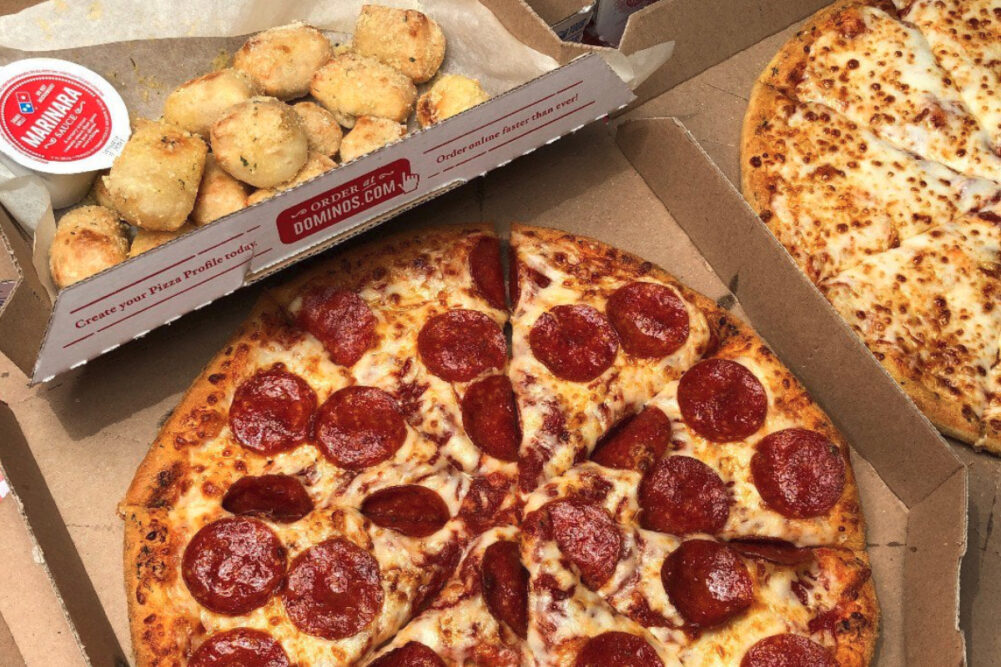ANN ARBOR, MICH. — Although approximately 1,750 of its international stores are temporarily closed, nearly all of Domino’s US stores remain open, deploying contactless delivery and carryout solutions that have helped the pizza chain generate strong sales despite the coronavirus (COVID-19) pandemic.
Same-store sales growth at Domino’s US locations was up 7.1% in the first four weeks of its fiscal second quarter (March 23-April 19). This compared with a 3.2% decline in same-store sales growth at its international locations in the first three weeks of the quarter (March 23-April 12).
The strong start to the second quarter comes on top of a solid first quarter for Domino’s.
Net income at Domino’s in the first quarter ended March 22 totaled $121.6 million, equal to $3.07 per share on the common stock, up 31% from $92.65 million, or $2.20 per share, in the same period a year ago. The increase primarily was driven by a lower effective tax rate as compared to the prior-year quarter as a result of higher tax benefits from equity-based compensation, Domino’s said. In addition, higher royalty revenues from US and international franchised stores and higher supply chain volumes also benefited net income. The increase in net income was partially offset by higher net interest expense as a result of a higher average debt balance, Domino’s said.
Net sales increased 4.4% to $873.1 million from $835.96 million.
In the United States, same-store sales growth in the first quarter was up 1.6% from the same period a year ago, while international growth increased 1.5%. During the quarter, Domino’s closed 71 stores in South Africa. The closings were not related to the COVID-19 outbreak.
Domino’s said that due to the current uncertainty surrounding the global economy and the company's business operations considering COVID-19, it is withdrawing its two-to three-year outlook for global retail sales growth, US same-store sales growth, international same-store sales growth and global  net unit growth.
net unit growth.
“The reality is that the world is changing very rapidly, and we are much more focused on the present and on how we’re going to continue to navigate this crisis going forward,” Richard E. Allison, president and chief executive officer, said during an April 23 conference call with industry analysts. “The restaurant industry is facing an existential crisis. And no one knows how many restaurants will survive or what form the industry will take as this crisis eventually abates. We also don’t know how consumer behaviors and purchasing patterns may evolve during and then after this COVID-19 crisis. We were fortunate to enter the year and this crisis in what we believe to be a very strong financial position, both at the brand and at the franchisee levels.”
Mr. Allison said that while fewer than 20 stores in its US business are currently facing temporary closings, its business model has adapted to the new environment, and standard operating procedures have changed considerably over the last two months.
“We're a 60-year-old brand that has rewritten most of our standard operating procedures in the last six weeks,” he said. “We've moved to a 100% contactless delivery model across the country. We have made our contactless drive-up carryout technology available to all US stores. We have temporarily banned customers from sitting and eating in our stores. We're asking our customers to practice social distancing when they visit us to pick up their carryout orders. We have implemented social distancing protocols in our store and supply chain for our team members there. And in addition to thermometers, we are supplying them with masks and gloves to protect our teams and our customers.”





